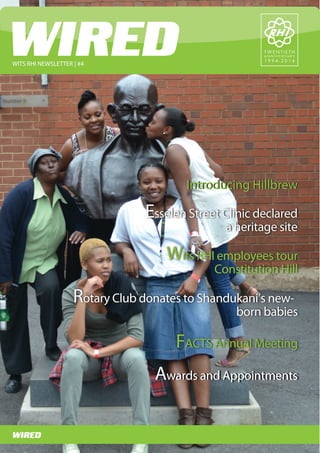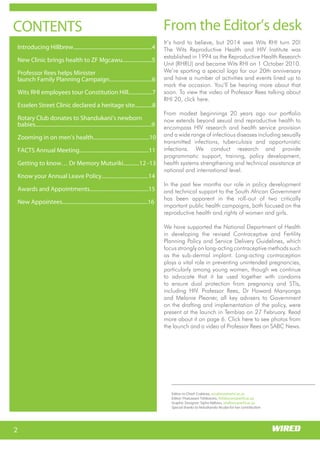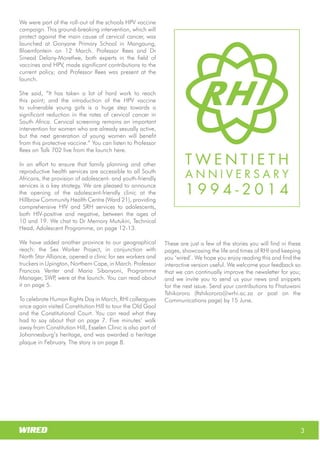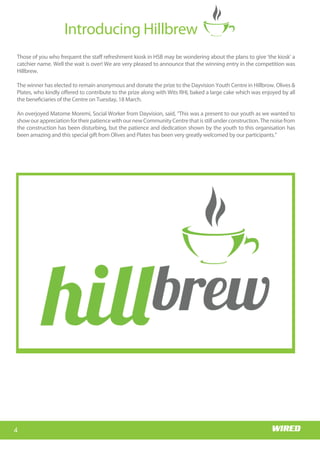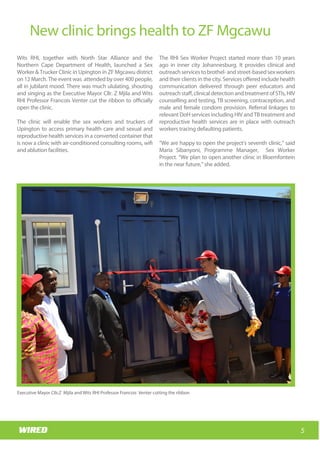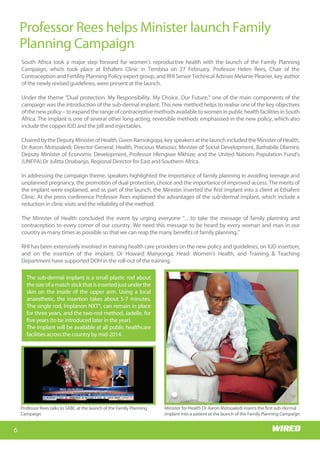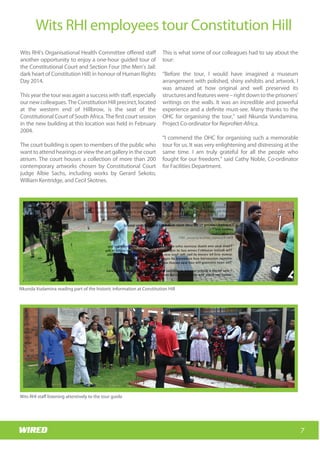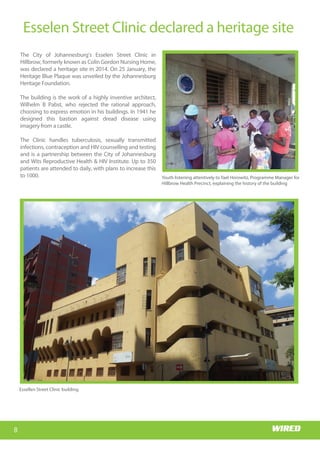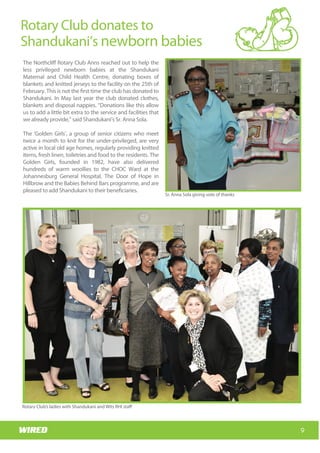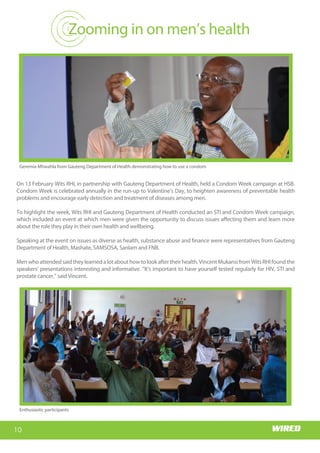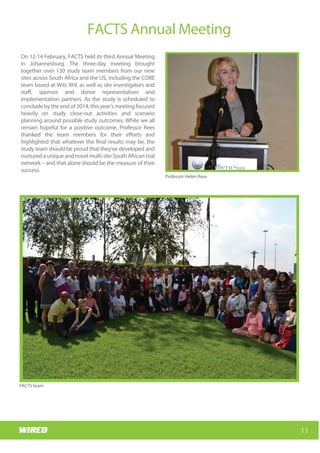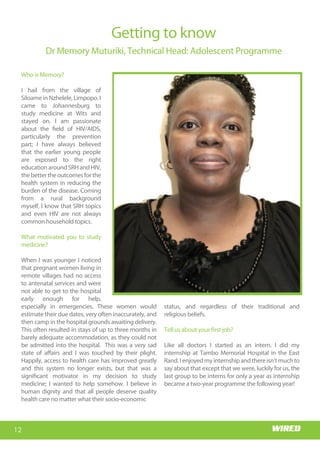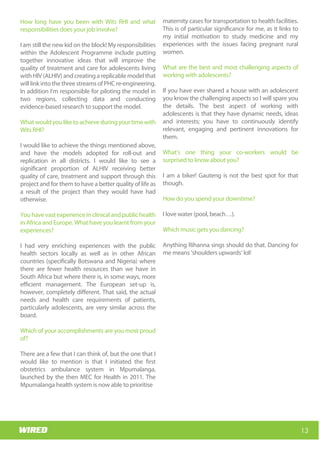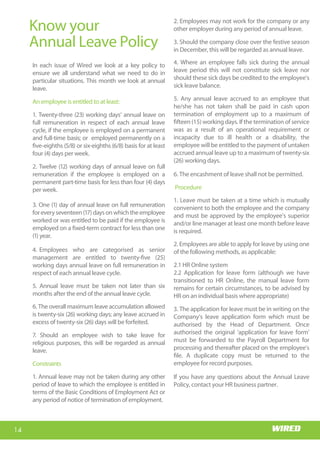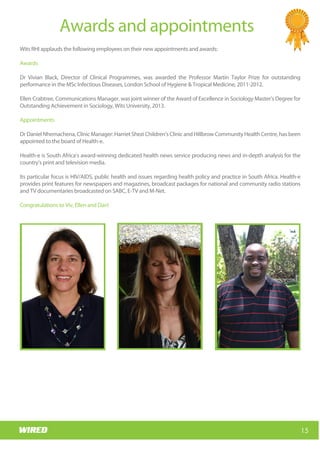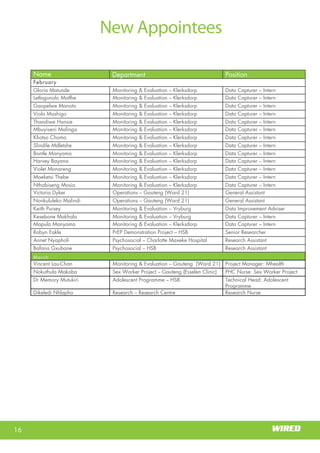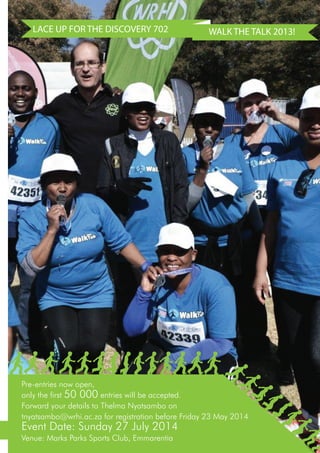This document introduces Dr. Memory Muturiki, the Technical Head of the Adolescent Programme at Wits RHI. It provides details about her background and career experiences. She grew up in a rural village in Limpopo and studied medicine at Wits University, where she remained to work. Her responsibilities in her current role include developing innovative ideas to improve care for adolescents living with HIV and creating a replicable model. She is most proud of initiating the first obstetrics ambulance system in Mpumalanga. In her free time, she enjoys water activities and dancing to Rihanna.
